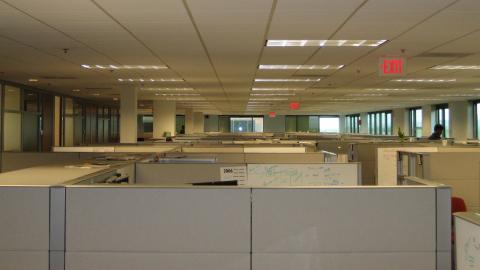Workspace Revolution

What’s the Latest Development?
Some of today’s leading companies are experimenting with radically new workspaces that place design and community at the forefront. “A project at the headquarters of Cisco Systems in San Jose, California, for example, overthrows decades-old conventions about office space. Called Connected Workplace, it replaces individual cubicles with open clusters of wheeled desks that belong to groups, not individuals; personal belongings are largely confined to lockers.” There are no P.C.s in tomorrow’s office because employees use mobile technologies.
What’s the Big Idea?
A number of impressive advantages can be expected from making more humane workspaces, i.e. ones that emphasize community over isolation. One is a big cost savings. “Cisco’s project, for example, was launched after an internal study found that cubicles were vacant two-thirds of the time while people roamed the campus or worked remotely. … Over the long term, Cisco hopes to save on health costs, too, because people who move around more frequently are less likely to suffer health problems.”





